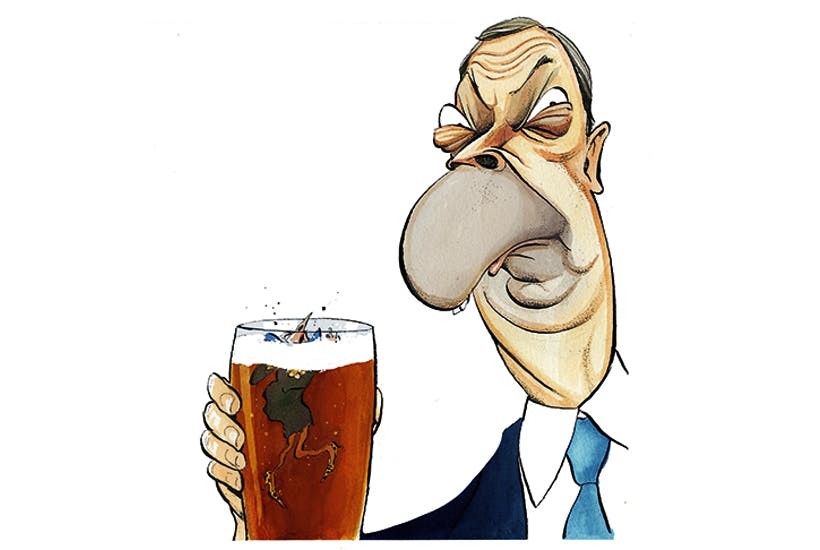How’s this for a terrible confession? There has always been a small part of me that admires Nigel Farage. As a Remainer liberal, it’s hard to admit. I disagree with Farage on many things. And my (partial) admiration doesn’t mean I forgive him for some of the low points of his political career, not least the disgraceful ‘Breaking Point’ poster unveiled in the lead-up to the EU referendum, nor his earlier comments about migrants with HIV. Yet I have a soft spot for outsiders, particularly ones like Farage who beat the odds.
What Farage achieved, all from outside a two-party system pitted against him, is unprecedented in the history of British politics. When you think back to where Euroskepticism was as an issue back in 2010 — and how Farage, more than anyone else, managed to drag it to the forefront of British politics in under a decade — it becomes clear that his achievements are simply astonishing. It’s not foolish to think there would never have been an EU referendum without the work of Nigel Farage. He fought the system and won.
But now, Farage is in danger of destroying his own legacy. Not too long ago, ‘Mr Brexit’ appeared to be plotting a transatlantic reinvention of himself as a right-wing pundit on Fox. With Trump gone though, and American politics back to ‘normal’, that opportunity appears to have vanished. Instead, Farage has taken another career turn: he’s flogging videos of himself giving birthday greetings for £75 a pop.
Suprise the Remoaner in your life with a personal message from me on Cameo. Check out my profile here: https://t.co/uPdkQjydNm pic.twitter.com/SO6nM5eWOH
— Nigel Farage (@Nigel_Farage) March 21, 2021
In a video advertising his services, Farage — decked out in Barbour jacket and welly boots — can be seen standing in the trunk of a dead oak tree. He says:
‘Surprise someone with a Cameo message from me, Nigel Farage. If they’re a Brexiteer, it could be a birthday, a wedding, an anniversary, and I will cheer them up. But also if you know someone who’s a Meghan Markle supporting, woke warrior Remoaner, well then I could really surprise them with the message, couldn’t I?’
To be fair to Farage, it’s clear that he still knows his audience. But asking supporters to pay him to culture-war bomb people who have different political views seems a sad end to what has been an illustrious career. This isn’t Farage the politician; it’s Farage the pantomime act. Farage is joined on Cameo by Trump impersonators, a Tom Cruise impressionist, a washed-up member of NSYNC and Carlton Banks from The Fresh Prince of Bel-Air. Farage deserves better.
But is this really the end of Farage? He’s quit politics more times than Spinal Tap have had to replace their drummer, so it would be a surprise to see him disappear completely from the limelight.
Yet before now, there has always been a road back for Farage. In the run-up to the referendum, he wanted one thing: to ensure Britain left the EU. After the vote, he sought to ensure the Tories didn’t go back on their word, holding Theresa May’s feet to the fire when it looked like they might. But with Boris Johnson having ‘got Brexit done’ and with little public appetite among Brits to even talk about the EU, perhaps this really does represent the end of the road for the Farage show.
‘All political lives, unless they are cut off in midstream at a happy juncture, end in failure,’ said Enoch Powell. In Farage’s case, those words have materialized rather quickly.
This article was originally published on The Spectator’s UK website.


















